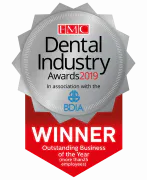BDS Witswatersrand 1999, BDS(Rand)1999 MClinDent(Guys)2010, MRD,RCS(Ed) 2010
GDC No. 76799
Sharon obtained her Bachelor in Dental Surgery (BDS) in 1999 from the University of the Witwatersrand in South Africa. Following graduation, she decided to move to London temporarily to work as well as have the opportunity to explore Europe. Sharon enjoyed London so much she decided to stay on and worked as a general practitioner in a private practice as well as at Guys Dental Hospital at the Department of Acute Dental Care. In 2006 she completed the Certificate in Restorative Dentistry at Eastman Dental Institute.
In 2006 Sharon started her specialist training at Guys Hospital. She completed her training in 2010 and registered as a Specialist in Endodontics in 2010. After qualifying as a specialist Sharon was the main author of a research article and a co-author on a peer review journal article, she also was a clinical teacher at Kings College Hospital for some time and worked in private practice too.
Sharon is now based in two private practices, 90 Harley Street and Chase Side Dental Practice. With over 20 years of experience in dentistry, Sharon is dedicated to providing fully comprehensive specialist endodontic care. Her aim is to provide a service convenient to local dentists and their patients.
In her free time Sharon enjoys spending time with her family and friends, painting, spinning and cooking.






